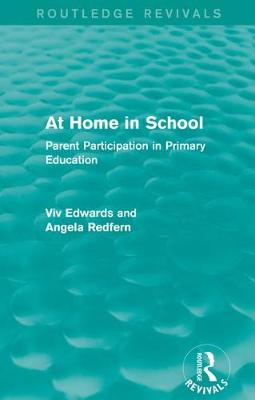Routledge Revivals
2 total works
First published in 1979.
The performance of West Indian children in British schools has been the subject of enquiries by both a parliamentary select committee and the Department of Education. It is widely believed that an important factor in the relative failure of West Indian children is the language they use, West Indian Creole, and while teachers and others who work with them are aware that their language is often very different from British English, they seldom understand the nature of the differences, or their implications. The aim of this book is to provide the non-specialist with an account of the language of West Indian children and to examine how linguistic 'interference' can affect their level of reading, writing and understanding, even when they have been born in Britain. It also considers the worrying possibility that negative attitudes towards them and their language may have an adverse effect on their motivation to learn standard English.
Viv Edwards places great stress on the fact that, although Creole is different from British English, it is in no way deficient as a language. She emphasizes the importance of familiarity with the structure of Creole, since it is only in this way that the teachers can discriminate between real mistakes and Creole 'interference'. Attention is drawn to the relationship between language attitudes and social stereotypes and the danger that these might be translated into reality. Different strategies available to the teacher are examined, drawing on American experience in this field, and various initiatives taken by British teachers are described, thus making the study a work of practical value to teachers and others.
Originally published in 1988, this book discusses the gradual move from the separation of home and school to an increasing acceptance of the central role of parents as partners in their children's education. The book looks at the progress made towards real partnership with parents. An eminently practical account of the advantages of working with parents and the ways in which this can be achieved, it will be of special value to student teachers and practicing teachers, and to parents interested and involved in their children's education.
The authors review national trends and developments since the issue was first seriously raised by the Plowden Report in 1967. Then focusing on one urban primary school (Redlands Primary School, Reading), they describe the changes which have taken place over a seven-year period, from the perspective of teachers, parents, and children. The book includes a personal account by Angela Redfern (formerly Deputy Head at Redlands) of what it has been like to be a teacher during this period of change, and telling comments from both parents and children on all aspects of involvement in school.
Partnership with parents emerges as a course of action which reaps benefits for all concerned, and the authors stress that the developments taking place in schools like Redland are important for all schools, irrespective of their social class or ethnic composition.

